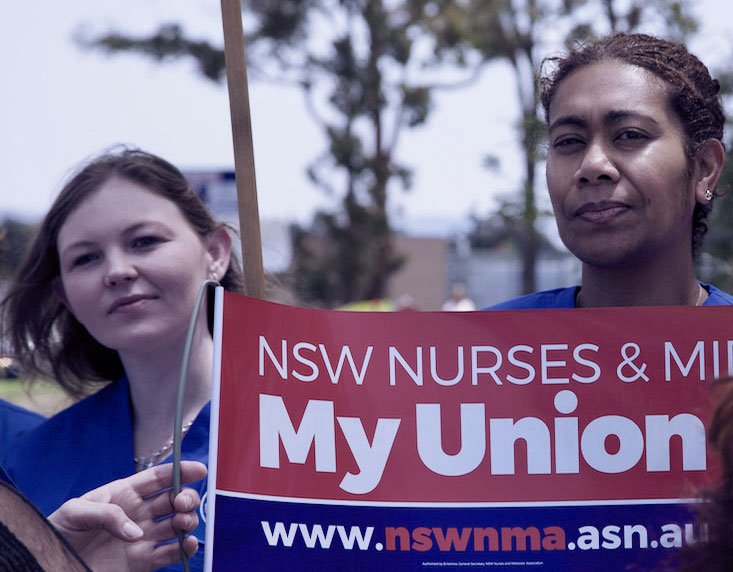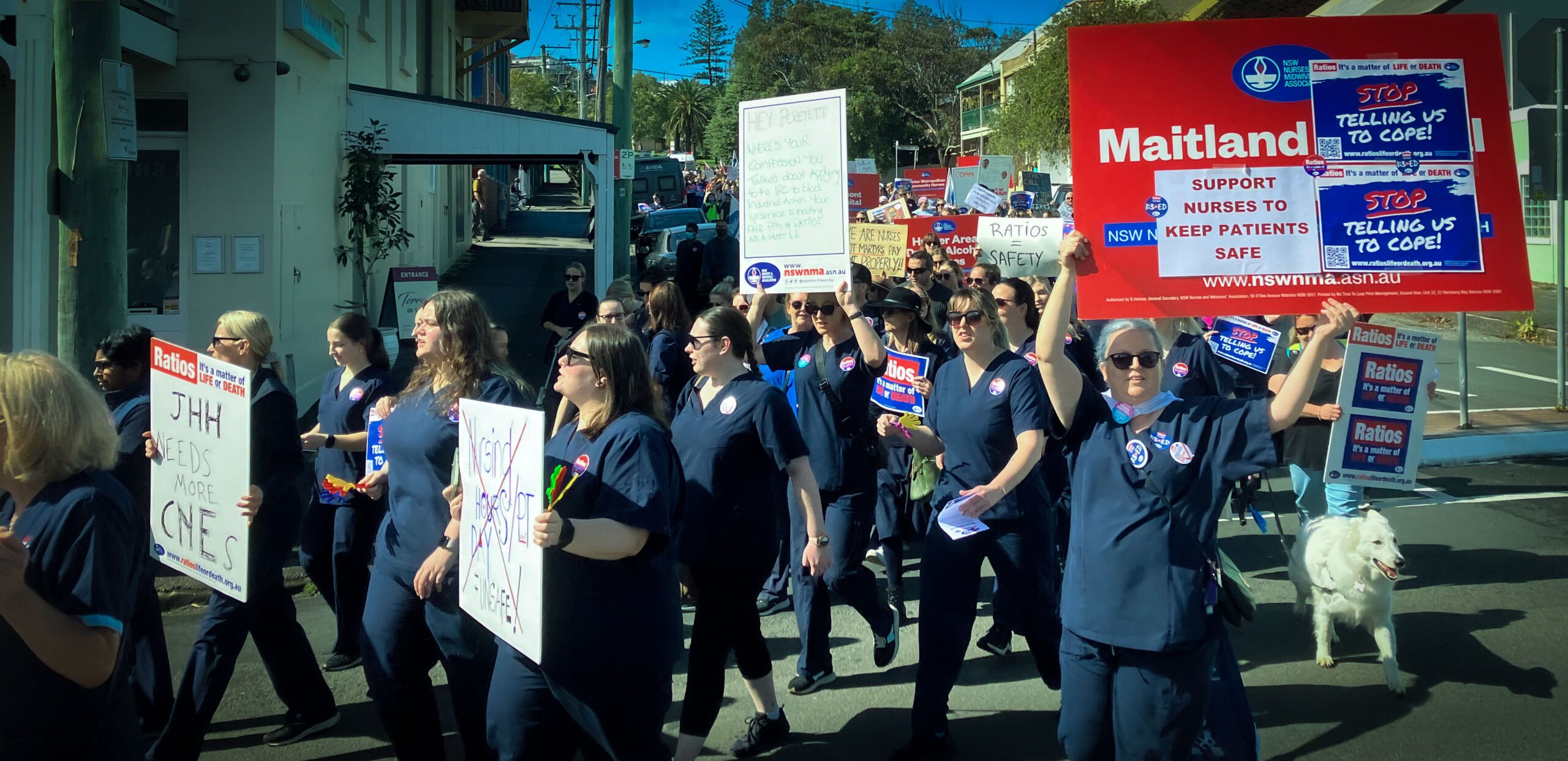NSWNMA members at the Mercy Aged Care facilities in Albury and Young voted last week to accept a substantial pay rise over the next two years, which also positions them and their employer to access extra federal funding – under the Federal Government’s new aged care Workforce Compact – for an even higher pay rise.
NSWNMA acting secretary, Judith Kiejda, said the outcome exposes as a sham the negative campaign being run by some employer groups, the federal Liberals and Nationals and The Australian newspaper against union agreements and the federal aged care Workforce Compact.
The pay rises secured in this union collective agreement bring pay rates for registered nurses, enrolled nurses and assistants in nursing at the 65-bed Mercy Place Mount St Joseph’s aged care facility at Young, and the 120-bed Mercy Place aged care facility in Albury, closer to the rates paid at other nearby aged care facilities and most other nursing homes around NSW. The big pay rise in 2013 for ENs and RNs also helps reduce the massive gap of between $5.70 and $11.00 per hour that existed between Mercy Aged Care nurses and public hospital ENs and RNs.
The outcome follows a long campaign, over a number of years, by nurses at the two Mercy facilities to secure a collective workplace agreement, which lifted them off the award and onto more competitive wage rates.
The agreed pay rises and new pay rates at Mercy are as follows:
| Classification | On reaching agreement | 1 July 2013 | 1 July 2014 |
| Assistant in Nursing | 4% | 3% | 3% |
| Enrolled Nurse | 7% | 4% | 4% |
| Registered Nurse | 7% | 4% | 4% |
| Nurses’ Award 2010 hourly rates | On reaching agreement | 1 July 2013 | 1 July 2014 | |
| 1 July 2014AIN thereafter | $18.57 | $19.31 | $19.83 | $20.49 |
| AIN Cert III thereafter | $18.93 | $19.68 | $20.28 | $20.89 |
| EN (Med) thereafter | $21.04 | $22.51 | $23.41 | $24.35 |
| RN first year | $21.58 | $23.09 | $24.01 | $24.97 |
| RN fifth year | $24.76 | $26.49 | $27.55 | $28.65 |
| RN thereafter | $27.43 | $29.35 | $30.52 | $31.74 |
The agreement also complies with the conditions required to access the extra federal funding under the aged care Workforce Compact and is an example of how the Workforce Compact can help improve aged care nursing wages and working conditions across NSW.
Mercy Aged Care at Albury and Young can now apply to be a party to the Compact and receive funding to provide an extra one per cent pay rise, in addition to the rises listed above, to its staff in July 2013 and another one per cent rise in July 2014.
Ms Kiejda said this outcome proves the federal Compact is a useful first step in addressing the problem of uncompetitive wages in the aged care sector and I encourage Mercy Aged Care to apply immediately to access the extra funding so we can get these nurses another one per cent per year.
“The outcome also proves that the anti-union, anti-nurse rhetoric we have heard from some employer groups, the federal Liberals and Nationals and sections of the media is nothing but an attempt to deny hard-working aged care nurses fair wages. It also shows that the claim by these same groups that many rural and regional aged care facilities are unable to comply with the Compact, because of the enterprise bargaining obligations it imposes, is rubbish. Anyway, how else do we ensure the money actually gets to the nurses and is not gobbled up by the employer for other purposes?
“More than 80 per cent of aged care facilities in NSW already have enterprise agreements with their employees and that includes 80 per cent in rural and regional areas:
NSW aged care workplace agreements:
| Industrial instrument in operation | Metro | Non-Metro | Total | Metro | Non-Metro |
| Federal Award | 80 | 42 | 122 | 14.5% | 12.8% |
| Non-Union Agreement | 20 | 1 | 21 | 3.6% | 0.3% |
| State Award | 2 | 24 | 26 | 0.4% | 7.3% |
| Union Agreement | 448 | 262 | 710 | 81.5% | 79.6% |
| Total | 550 | 329 | 879 | 100.0% | 100.0% |
“Negotiating new agreements that comply with the Compact, and allow the facility operators to access extra funding for pay rises, will be no big deal. As for the remaining one hundred or so NSW facilities without current agreements, they are no different to the facilities that do and finalising Compact-compliant agreements with them should not be any trouble either. That is good news for aged care nurses and good news for the aged care sector as a whole,” Ms Kiejda said.
Contact details
Judith Kiejda
Ph: 02 8595 1234








